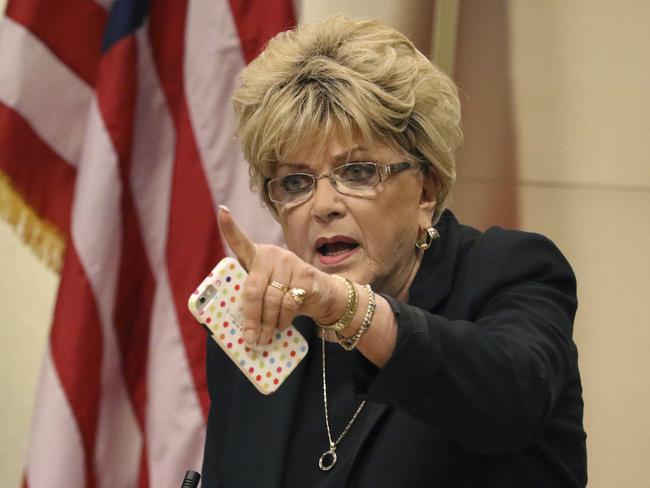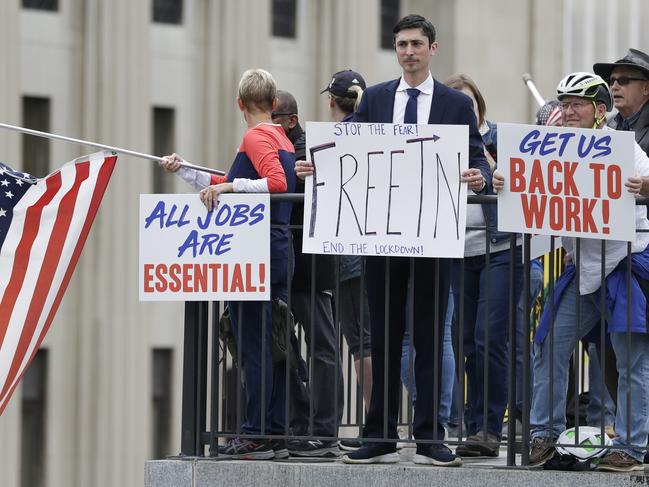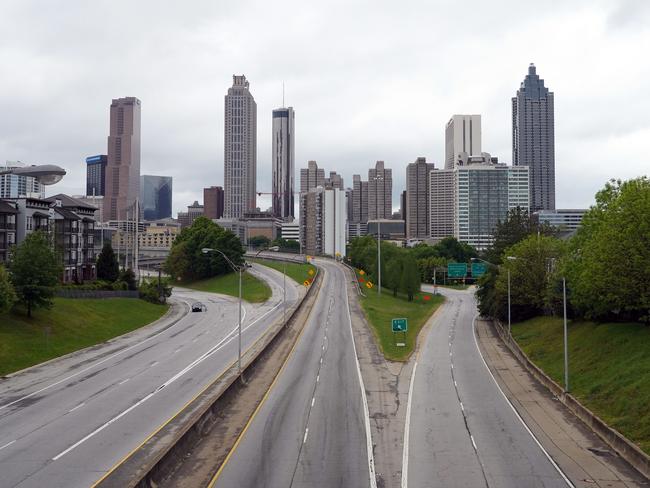US COVID-19 lockdown: States go head-to-head to reopen country’s economy
Battles to restart the US economy are being fought along partisan lines as Republican states lead to wind back restrictions and the Las Vegas Mayor draws criticism calling for casinos to reopen.
World
Don't miss out on the headlines from World. Followed categories will be added to My News.
Increasingly heated battles over restarting America’s economy are largely being fought along partisan lines, with Republican states leading the charge to wind back restrictions as many on the left accuse them of trading lives for dollars.
But it took an independent mayor in a swing state to make the boldest pitch yet against the lockdown.
Suggesting her city become a coronavirus “experiment” for the rest of the country, Las Vegas Mayor Carolyn Goodman drew sharp criticism from pretty much all sides after she called for casinos to open again to punters.
“I offered to be a control group and I was told by our statistician you can’t do that because people from all parts of southern Nevada come in to work in the city,” Ms Goodman said this week.
“We would love to be that placebo side so you have something to measure against.”
Mayor Goodman’s blunt contention shutting The Strip was “alarmist” was quickly smacked down by Nevada Governor Steve Sisolak, who said: “We are clearly not ready to open”.
Like many Democrat governors in the US, Mr Sisolak said he would not begin to look at opening until deaths and infections reduce, and Nevada’s numbers were still climbing.
Under a recovery plan released by US President Donald Trump earlier this month, the first of three phases of reopening should not start until regions have two weeks of downward trajectory of infections and “robust testing” is in place.

Despite not meeting these measures, several states have either not shut down or are lifting stay-at-home orders, responding in part to protesters who have turned out across the country to insist it was time to take their chances with the coronavirus.
Driven by a flailing economy and tsunami of lost jobs, with 26.5 million new unemployment benefit applications in the past five weeks (more than Australia’s population), a growing chorus is arguing the cure is far worse than the illness.
It has led to an uneven and sometimes baffling set of outcomes, with Georgia, South Carolina, Tennessee and Florida among the states racing to open up well ahead of their recommended dates.
Many are also doing so well ahead of their projected peaks.

When Georgians wake up today, they will be able to go bowling, get their nails done, have a massage, get a tattoo or haircut and head to the gym.
Governor Brian Kemp’s executive order will also open some restaurants and private social clubs from Monday.
All of this despite objections ranging from Mr Trump to Atlanta’s mayor, who both said it was “far too soon”.
One of the last holdouts against mandated lockdowns, South Dakota Governor Kristi Noem insisted her “unconventional” approach of not issuing a shelter-in-place order was working because residents in her state “valued their freedoms and liberties”.
Ms Noem echoed protester complaints governments should not “take too much power in a time of crisis” and boasted her state had beaten “peak projections by 75 per cent”.
This was despite projections South Dakota’s infections would be at their highest in mid-June.
“I think that’s how we directly lose our country someday, by leaders overstepping their proper role,” she said.
Many public health experts are warning states not to reopen.
“They’re clearly taking a risk,” Dr Isaac Weisfuse told News Corp Australia.
“The consensus for most public health people is that we’re not quite ready to open up and most public health people would be anxious to not open up the social distancing restrictions at this stage.
“I don’t know the circumstances in each and every one of these cities and states, but cities are particularly vulnerable, because of crowded conditions and people who can’t telecommute.
“And so my fear is that they will see more cases and ultimately more deaths.”

A former Deputy Commissioner at the New York City Department of Health and Mental Hygiene, Dr Weisfuse was previously in charge of pandemic planning for New York and said the city was getting its own outbreak under control, after initially being the worst hit in the US.
More than 15,000 of America’s 46,000 COVID-19 fatalities have been in New York State.
“I think we’ve had some missteps,” Dr Weisfuse, who is also an adjunct professor at Cornell University, said.
“I hope that in the next set of interventions such as contact tracing, we get that as right as we possibly can and try to make sure that anybody who is sick gets the right health care.
“It’s been not optimal in the beginning, but I think we can do a course correction right now.”
